And Bill dismisses it as a completely incoherent, laughable collection of shock moments without rhyme or reason. It gives Nardole and the Doctor some dramatic short-cut in the plot that follows, but I doubt the first draft of the episode suffered particularly badly without this. Of course the mummified monks in their pyramid spaceship were up to something dodgy, and they cheerfully explain their 'predictive text technology' with such ease, Extremis really wasn't necessary. Only Bill's tale of her simulated self's encounter with the Pope, and its counterpart in reality with the secretary general of the UN, really justifies it.
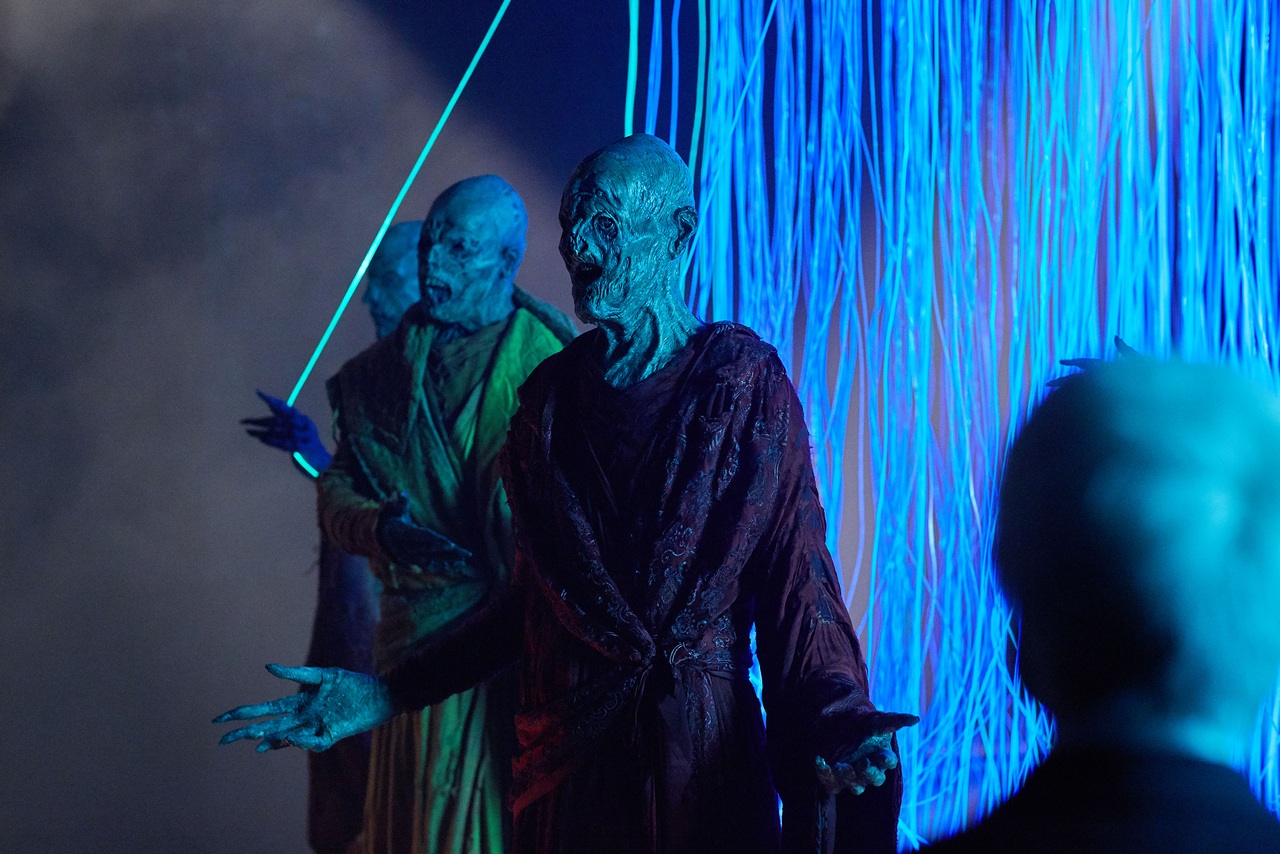 |
| Pull at a plot thread and see all the credibility unravel... |
Still, rather like the ongoing plot of the Doctor being blind, these are elements that have been added to a story to enhance it - even though it probably coped just as well without it. The climax with the Doctor trapped in a poison-filled quarantine bay, echoing so much Tennant's "death" scene in The End of Time, would have worked just as well without the "Ah, yes, can't see the buttons to escape" caveat. That said, having his martyr complex and controlling tendencies keeping Bill in the dark about this add to the tragedy of the climax, so we're no worse off with it.
The whole thing can be summarized in the wonderful character of lab tech girl Erica. She's a dwarf. There is nothing in the story that requires her to be a dwarf. No one mentions it. There's a good-to-better chance the character was scripted as someone of more normal proportions. At no point does her body-size effect the plot (compare to Warwick Davis in Nightmare in Silver who was still considered a bit of a freak in the society of 250000AD for not being tall) in any way. Well, that shot of her walking through the labs seems to cry out for Steven Fry screaming "GET! THAT! ARSE!" but nope, she's just an average human being. You can't help but be glad they cast a little person for being a brilliant actress rather than being little.
Thus, The Pyramid at the End of the World is enhanced by these "needless" additions. Certainly the Truth Monks are improved this week by having the audience actually comment on them. Last week, we were just supposed to be scared of the poorly-dubbed skull-faced monsters because they were ugly and sinister. This week, they actually earn some credibility as they burn to dust those that fail their standards, and even their generic appearance is actually a calculated insult to those who look upon them. Last week, we weren't asked to think anything beyond 'They're ugly and evil!' but this week, they are intimidating because we don't know what their motives or plans are. Peter Harness portrays the monks as a mystery, whereas Moffat used them as a jump scare - and probably mapped out Extremis long before the idea of an ongoing story arc to justify the monsters ever occurred to him.
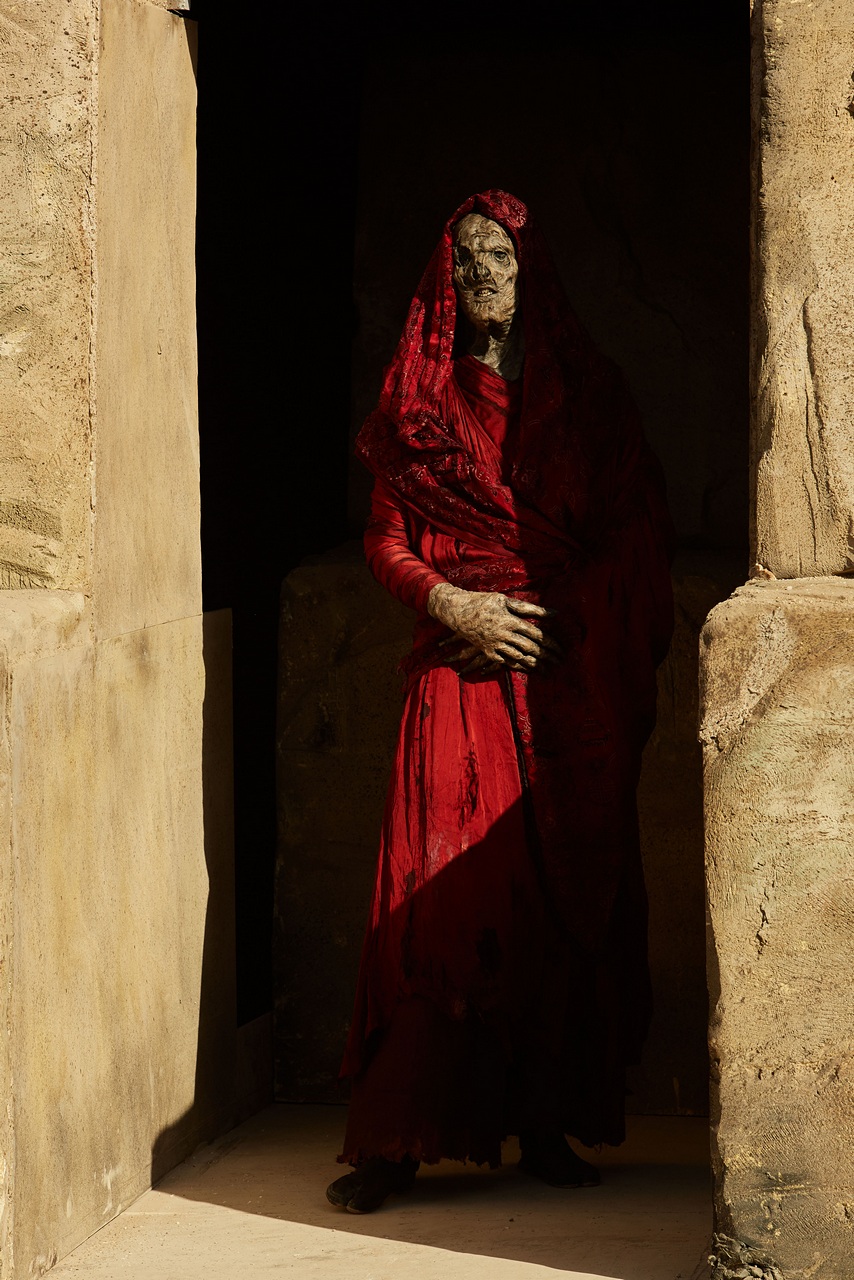 |
| The focus group insisted this would appeal more to humanity than those whores of Axos... |
Not to say Harness gets off scott free, of course. As always, he has to offer us something with a credibility-destroying plot hole that makes it really hard to accept the story on its own terms. Yes, we can grin and face the idea the moon is a giant egg full of spider bacteria, but the idea mankind has waited ten years to do anything about it? OK, the Zygons might be able to telepathically snatch out disguises to intimidate enemies like a polymorph or siren, but that a whole platoon of UNIT troops happily walk into an obvious trap without even one of them staying outside just to be on the safe side?
This time, it's Erica's idiot lab assistant. Yes, it's all about random factors and chaos theory. Yes, it's clear a crucial hangover and broken pair of glasses means he's in the right place and right time to unwittingly create life-destroying bacteria that will sterilize the globe. Yes, he's dumb enough to take his helmet off.
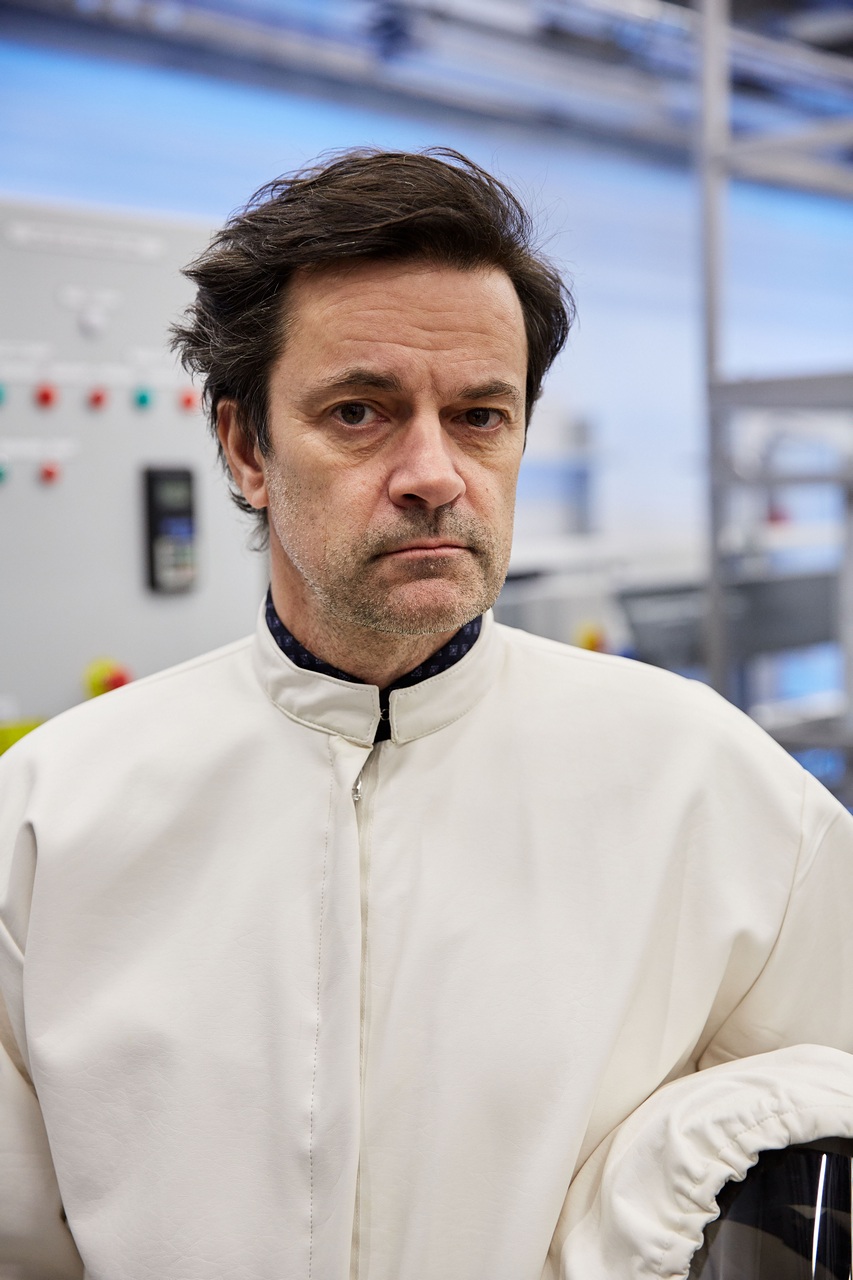 |
| Behold, the dickhead who destroys all life on Earth. And his breath stinks! |
But then, upon seeing he has created a biblical plague right of Steven King's The Strand, he... doesn't put his helmet back on. He grabs a sample of poisoned soil and holds it in front of his face. Then he takes it past not one but two quarantine airlocks without even trying to close the doors behind him... The worst thing is, the plot insists he's just doing this by accident rather than, say, being a sleeper agent for the Monks. Pity.
As this is ostensibly the middle part of a trilogy, it can't really be reviewed. Certainly, it's easy to imagine TPATEOTW as a standalone story with the opportunist aliens defeated by the Doctor purging the virus at the end in a metatextual mockery of Children of Earth (with Peter Capaldi saving the day rather that committing murder-suicide in total despair) and you can easily see that this, and Extremis before it, have been slaved to the actual Monk extravaganza in next week's episode rather than the other way round.
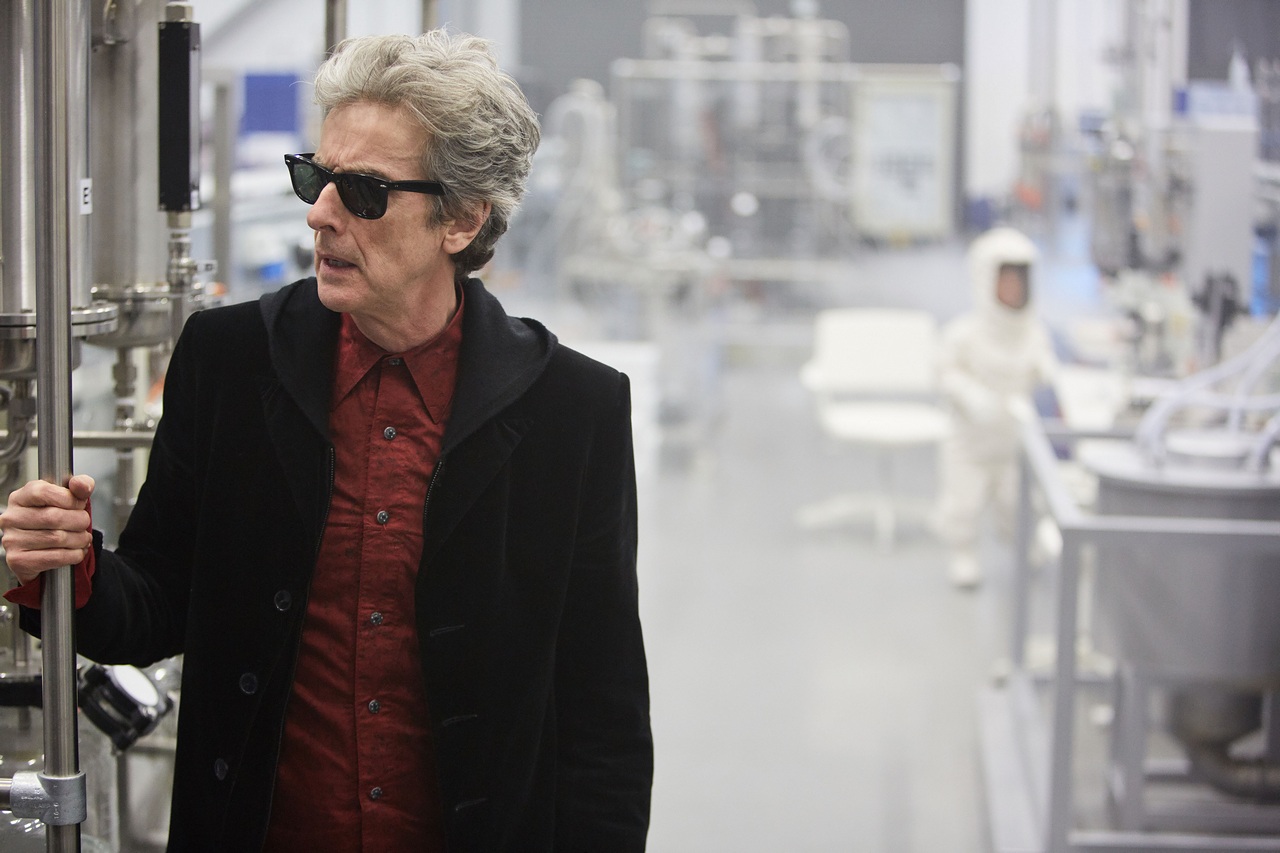 |
| "Bill, Nardole, you're both being very quiet today... Hello?" |
So, er...
I'll just fill up bandwidth with a discussion of the uncanny similarities between Sylvester McCoy era Who and Inspector Gadget. Curiously, they were both broadcast one after the other every weekday during my distant youth and to this day part of me feels a bit of whiplash watching a whole Seventh Doctor adventure without alternating with the immensely popular French-American cartoon.
Recent catastrophic events lead me to watch IG again out of pure nostalgia and was impressed to find them no worse than the ones I loved during my youth. Certainly, it's amazing how much my memory of plots faded but the music didn't (I can still do a fake Inca war chant I hadn't heard since 1989 on request) and the beautiful painted artwork still stands up today. Yeah, so, it's a silly kids cartoon - big deal. Even as a toddler I was aware of the differences between Gadget fighting MAD and Bob Craven in Edge of Darkness and knowingly chose the former.
Now, the premise of IG is pretty simple. Gadget is a cross between Max Smart, the bloke from the Pink Panther films and the Terminator - a dedicated but moronic police detective with a frightening range of multipurpose tools that rarely work. He takes on an organized terrorist group and defeats them mainly because of his super intelligent niece and GM dog Brains. Every episode starts with Gadget getting a ridiculously-specific tip off that MAD is up to something, goes to an exotic locale and manages to get completely the wrong end of the stick while Penny and Brains defeat the bad guys, call in the cops and indulge in incredible amounts of computer hacking given it was made in 1982. The evil leader of MAD, the unseen Dr. Claw, gets away vowing revenge and the last minute is some general public service advice and sight gags showing it's a miracle Gadget hasn't killed himself in general ineptitude.
Yet, IG still rings true to my heart as the McCoy era does even though there's certainly next to no subtext to be rewarded in deeper readings. And yet... I realize now that they were basically the same show. Gadget looks like a tall, less question-marked version of the Seventh Doctor (invariably he uses an umbrella once an episode) and is a cheerful, gormless tourist who fights bad guys. The difference is the Doctor pretends to be a moron, and Gadget doesn't - but everyone assumes he is because he's trying to fool his enemies.
Looking back at it, the Seventh Doctor and Gadget could be interchangeable. His first story, blundering around Lakertya, assuming enemies are friends and visa versa, constantly trying to escape and putting himself in more danger, upsetting plans by accident and falling for countless tricks from obvious bad guys. The running around corridors back and forth, being mistaken for the wrong person and visa versa and trying to rationalize the bizarre actions of those around him (like the end of part one of Paradise Towers) interspersed with funny slapstick. The car chases in Wales or on Terra Alpha or in Cadbury, the jokes of being left notes and instructions in bizarre places, the dynamic of him and his companion having wildly-separate adventures and at times IQs...
Mel and Ace work as Penny/Brain as well. They're both young, precocious ladies who try to keep the Doctor from being sidetracked, show moral outrage, discover secret passages, get attacked by monsters and invariably save the day with well-timed explosions and/or hacking. Ace's desperation to get the Doctor to treat the Psychic Circus as dangerous is the perennial B-plot of IG played absolutely dead straight. Mel nearly being eaten by cannibals or Ace locked up with killer Victorians is just the sort of constant traumatic terrors Penny goes through each episode, though she generally just runs away instead of giving them lip.
And the villains, too, bare a shocking similarity to Gadget's rogues gallery. Dr. Claw sits in a scary castle somewhere watching his enemy on TV screens and screaming at incompetent sidekicks to deal with the main character, snarling and thumping the table when things go wrong.
 |
| "Hello there, Kroagnon. This is the Doctor speaking - no doubt you've heard of me..." |
Just like the Rani on Lakertya, able to turn on scanners to watch Urak chasing Mel through a quarry. Or the Chief Caretaker sending the cleaners after the Doctor (Kroagnon's Claw-like voice and roars when the Doctor grins from a TV screen are particularly familiar.) Even Gavrok, smashing a speaker and hiring a swarthy mercenary to infiltrate the Doctor and kill him follows the pattern, while Kane watching the Doctor and Glitz trying to chase the fire-breathing dragon in a dark labyrinth as Ace and Mel chase after them is enough to make me uncertain what I'm watching. But it doesn't end there - the growling not-Davros Dalek in Ratcliffe's shed giving ominous instructions to the nazis while never turning around to show its face, Helen A ordering the Kandyman and the Happiness Patrol from her office, Morgaine gazing into her crystal ball as she sends in the troops, or the Master watching through a kitling. Cut sequences from Ghost Light would show Josiah sitting in the dark using security cameras to spy on the Doctor and Ace as they move through his haunted house full of craziness just like The Haunted Castle of IG fame.
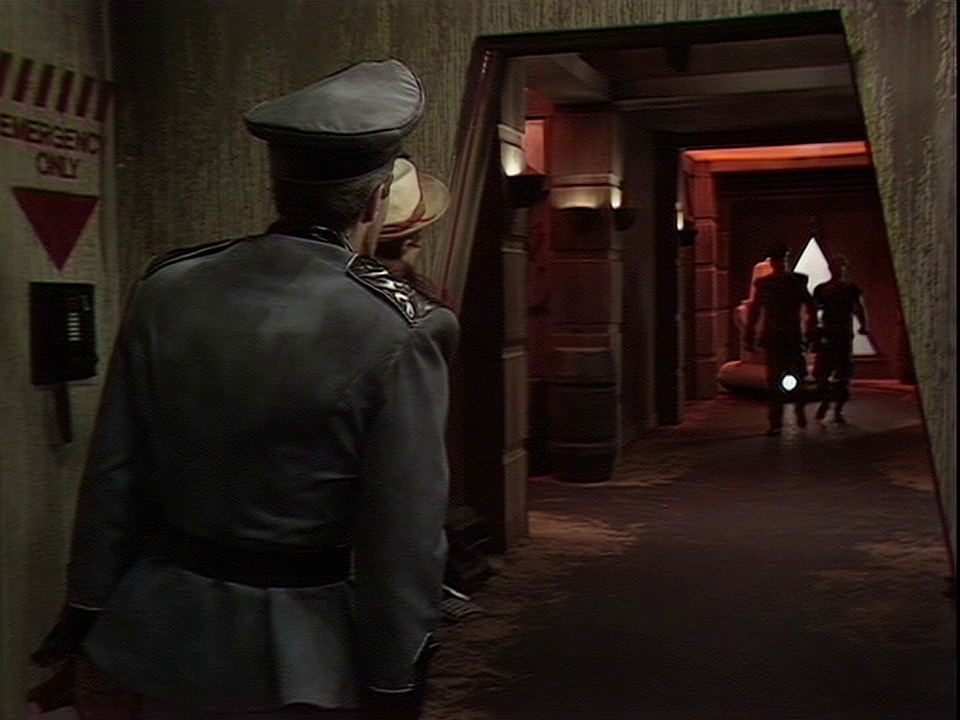 |
| "I'll get you next time, Gadget... NEXT TIMMEEEEE!!!" |
Other elements of the episodes blur together. Remembrance of the Daleks and All That Glitters both involve the villains chasing after a totally useless resource without realizing it, and the hero spends most of the story trying to stop innocent civilians being caught in the traps he's laid for the bad guys before Skaro is destroyed/the Incan city is destroyed by a boobytrap. MAD and Cybermen are obsessed with gold to an unnerving degree. Pirate Island is basically Delta and the Bannerman relocated from Shangri-La to, uh, well a desert island with pirates, even down to the bewildered tourists and bombs blowing up civilian vessels. A high-rise holiday resort is turned into a trap-filled dungeon full of incompetent managers with killing machines traveling through lifts, intending to wipe out all the unwanted visitors thanks to a basement dwelling villain screaming a two-syllable word over and over again...
Yeah. Inspector Gadget. It rocks.
 |
| Oh, and it was going so well too. That's rubbish that is. The tagline doesn't even make sense! |
Which, you know, is never an even bet.
No comments:
Post a Comment